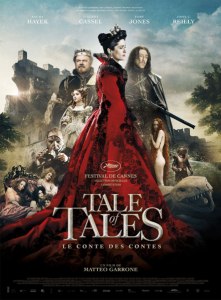Greek director Yorgos Lanthimos envisions a dystopian future in a satire about modern romance.
 If you could be transformed into any animal, which would it be? It sounds like a bad question on a dating website, and yet we’ve become more reliant on such quirks in defining relationships and romance. Colin Farrell chooses to be the title animal in “The Lobster,” an absurdist satire that uses a hilariously bizarre, futuristic premise to lampoon the idea of modern love.
If you could be transformed into any animal, which would it be? It sounds like a bad question on a dating website, and yet we’ve become more reliant on such quirks in defining relationships and romance. Colin Farrell chooses to be the title animal in “The Lobster,” an absurdist satire that uses a hilariously bizarre, futuristic premise to lampoon the idea of modern love.
Director Yorgos Lanthimos, the Greek director behind “Dogtooth” now working in the English language, imagines a future in which it’s a law to have a romantic partner. Those without one, like David (Farrell) after recently becoming a widower, are sent to an upscale resort hotel and given 45 days to find a match or be transformed into an animal of their choice.
Lanthimos has some fun in subtly revealing the details of this premise, and the film’s deadpan style slowly works its way from raised-eyebrow peculiarities to laugh-out-loud moments of uneasy humor. For instance, David casually drops the detail that his dog is actually his brother who didn’t “make it.” When he arrives at the hotel, his choice to become a lobster has more to do with survival than preference. He envisions a long life span, an ability to swim and an easier chance at mating, and we wonder if David’s not actually trying to make it as a human any longer but simply waiting out the clock.
The details get stranger. Periodically the hotel guests are required to participate in a hunt for “loners,” single people who have rejected the rules of society and now live in the forest. Bagging one nabs you an extra day, and some hotel guests have spent years here as a result. Lanthimos stages these hunts like graceful slow-motion sequences in a Michael Mann film, stylized, operatic and wholly absurd. Guests are also tethered through their belt loops and restricted from masturbating; one who breaks the rule (John C. Reilly) gets his hand shoved in a toaster during breakfast. And only those who share similar characteristics to each other can become couples. One young girl (Jessica Barden) touts that she gets sporadic nosebleeds. David might be interested, but his trait is that he’s shortsighted, so no match.
“The Lobster” works great as a dystopian comedy (without explanation, random elephants or flamingos can be spotted in the background), but it helps that these oddities have parallels to dating in 2016. We give too much weight to superficial character traits, we go to great lengths to remain in love, we assign unnecessary rules and norms on society, and we shun those who can’t find a significant other. Lanthimos approaches these themes with ironic levity, like when the hotel’s manager informs an aspiring couple, “If you cannot solve any problems yourselves, you will be assigned children,” or with shocking poignancy, like the line, “A relationship can’t be built on a lie,” after it’s revealed one member of a couple faked a similar character trait.
Of course we know love is never defined by strict rules. Lanthimos’s deadpan tone, with every character delivering their lines in matter-of-fact, staccato notes (not to mention a score that’s equally terse and arresting), underscores the need to dismantle what he sees as ludicrous institutions.
Love however is something of an act of survival. For as comically bleak as “The Lobster” can be, the romance formed between Farrell and another loner played by Rachel Weisz reaches touching heights. Lanthimos asks if it’s harder to pretend you have feelings or that you don’t, and there’s a push-and-pull between this film’s harder exterior and softer inside. It’s a perfect match.
4 stars

 If you could be transformed into any animal, which would it be? It sounds like a bad question on a dating website, and yet we’ve become more reliant on such quirks in defining relationships and romance. Colin Farrell chooses to be the title animal in “The Lobster,” an absurdist satire that uses a hilariously bizarre, futuristic premise to lampoon the idea of modern love.
If you could be transformed into any animal, which would it be? It sounds like a bad question on a dating website, and yet we’ve become more reliant on such quirks in defining relationships and romance. Colin Farrell chooses to be the title animal in “The Lobster,” an absurdist satire that uses a hilariously bizarre, futuristic premise to lampoon the idea of modern love. Near the beginning of “Tale of Tales” a slender, cloaked old man slinks his way into the palace of the King and Queen of Longtrellis (John C. Reilly and Salma Hayek) to bestow upon them a prophecy. The Queen is desperate to have a child, and she agrees to the specter’s challenge: “Hunt a sea monster, cut out its heart, have the heart cooked by a virgin, she must be alone, then eat the heart, and you will become pregnant.”
Near the beginning of “Tale of Tales” a slender, cloaked old man slinks his way into the palace of the King and Queen of Longtrellis (John C. Reilly and Salma Hayek) to bestow upon them a prophecy. The Queen is desperate to have a child, and she agrees to the specter’s challenge: “Hunt a sea monster, cut out its heart, have the heart cooked by a virgin, she must be alone, then eat the heart, and you will become pregnant.”